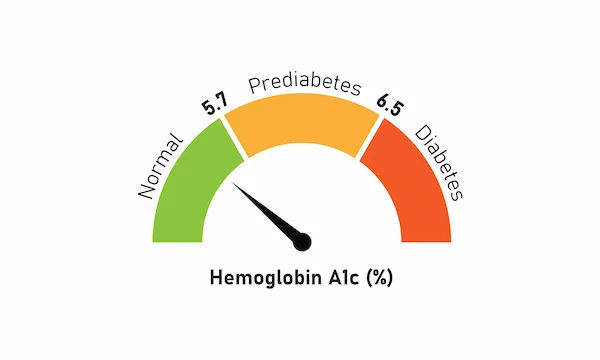Understanding Diabetes Symptoms and Signs
Recognise the early symptoms of diabetes, frequent urination, fatigue, blurred vision, and more. Learn about causes, complications, and how to manage diabetes effectively with expert tips.

Written by Dr. Siri Nallapu
Reviewed by Dr. D Bhanu Prakash MBBS, AFIH, Advanced certificate in critical care medicine, Fellowship in critical care medicine
Last updated on 22nd Jul, 2025

Introduction
Diabetes is a common yet serious health condition that affects millions of people worldwide. If left unmanaged, it can lead to severe complications. Recognizing the early signs and symptoms of diabetes is crucial for timely diagnosis and treatment. In this article, we’ll break down everything you need to know about diabetes symptoms, causes, and ways to manage it effectively.
What is Diabetes?
Diabetes is a chronic condition that affects how your body processes blood sugar (glucose). Glucose is the primary source of energy for your cells, and insulin (a hormone produced by the pancreas) helps regulate its levels. When your body doesn’t produce enough insulin or becomes resistant to it, glucose builds up in the blood, leading to diabetes.
There are two main types of diabetes:
1. Type 1 Diabetes: An autoimmune condition where the body attacks insulin-producing cells. It usually develops in childhood or young adulthood.
2. Type 2 Diabetes: Occurs when the body doesn’t use insulin properly (insulin resistance). It’s more common in adults but can develop at any age due to lifestyle factors.
Common Symptoms of Diabetes
Early detection of diabetes can prevent complications. Here are some key signs to watch for:
1. Frequent Urination (Polyuria)
High blood sugar forces the kidneys to work harder to filter excess glucose, leading to more frequent urination, especially at night.
2. Excessive Thirst (Polydipsia)
Due to frequent urination, the body loses more fluids, making you feel constantly thirsty.
3. Increased Hunger (Polyphagia)
Since glucose isn’t properly absorbed by cells, the body signals for more food, leading to persistent hunger.
4. Unexplained Weight Loss
Despite eating more, sudden weight loss can occur because the body starts burning fat and muscle for energy when it can’t use glucose efficiently.
5. Fatigue and Weakness
Without enough glucose reaching cells, energy levels drop, causing tiredness and irritability.
6. Blurred Vision
High blood sugar can cause swelling in the eye lenses, leading to temporary blurry vision.
7. Slow-Healing Wounds
Diabetes affects blood circulation and immune function, making cuts and infections take longer to heal.
8. Tingling or Numbness in Hands/Feet
High sugar levels can damage nerves (diabetic neuropathy), causing tingling, pain, or numbness, especially in the extremities.
9. Frequent Infections
People with diabetes are more prone to infections, such as urinary tract infections (UTIs), yeast infections, or skin infections.
10. Darkened Skin Patches (Acanthosis Nigricans)
Some people develop dark, velvety patches on the neck, armpits, or groin, which may indicate insulin resistance.
What Causes Diabetes?
The causes vary depending on the type:
Type 1 Diabetes
Autoimmune reaction: The immune system mistakenly destroys insulin-producing cells.
Genetic factors: Family history increases risk.
Environmental triggers: Viral infections may play a role.
Type 2 Diabetes
Insulin resistance: Cells don’t respond well to insulin.
Obesity & inactivity: Excess weight and lack of exercise increase risk.
Genetics: Family history is a major factor.
Age: Risk increases after 45, but younger adults and children can also develop it.
Gestational Diabetes
Occurs during pregnancy due to hormonal changes and usually resolves after childbirth, but increases the risk of Type 2 diabetes later.
How Diabetes Affects Your Health?
If uncontrolled, diabetes can lead to serious complications, including:
Heart disease & stroke
Kidney damage (nephropathy)
Nerve damage (neuropathy)
Vision loss (retinopathy)
Foot problems (poor circulation, infections, ulcers)
Skin conditions
Managing Diabetes: Tips for a Healthier Life
While diabetes is a lifelong condition, it can be managed effectively with lifestyle changes and medical care.
1. Monitor Blood Sugar Regularly
Keeping track of glucose levels helps in adjusting diet, exercise, and medications.
2. Eat a Balanced Diet
Choose whole grains, lean proteins, and healthy fats.
Avoid sugary drinks and processed foods.
Control portion sizes to manage blood sugar spikes.
Get Your Symptoms Checked By An Endocrinologist
3. Stay Active
Regular exercise (walking, swimming, yoga) helps lower blood sugar and improves insulin sensitivity.
4. Take Medications as Prescribed
If your doctor prescribes insulin or oral medications, follow the schedule strictly.
5. Maintain a Healthy Weight
Losing even 5-10% of body weight can significantly improve blood sugar control.
6. Stay Hydrated
Water helps flush out excess sugar through urine.
7. Quit Smoking & Limit Alcohol
Both can worsen diabetes complications.
8. Manage Stress
Stress hormones can raise blood sugar, so practice relaxation techniques like meditation.
When to See a Doctor?
If you experience any of the symptoms mentioned, consult a doctor immediately. Early diagnosis can prevent complications.
Book a Diabetes Screening Test on Apollo 24|7
Regular check-ups are essential for managing diabetes. You can easily book a blood sugar test or consult a diabetes specialist on Apollo 24|7 for expert guidance.
Conclusion
Diabetes is manageable with the right care and lifestyle adjustments. Recognizing symptoms early and taking proactive steps can help you lead a healthy, active life. If you suspect you or a loved one may have diabetes, don’t delay, get tested and seek medical advice.
Get Your Symptoms Checked By An Endocrinologist
Get Your Symptoms Checked By An Endocrinologist

Dr. Nithin Reddy Modhugu
Endocrinologist
6 Years • MBBS, MD (General Medicine), DNB (Endocrinology)
Hyderabad
Dr. Nithin's Endocrine Clinic, Hyderabad
(100+ Patients)

Dr. Gayatri S
Endocrinologist
4 Years • Suggested Qualifictaion- MBBS, MD (Internal Medicine), DM (ENDOCRINOLOGY)
Nellore
Narayana hospital, Nellore

Dr. Anand Ravi
General Physician
2 Years • MBBS
Bengaluru
PRESTIGE SHANTHINIKETAN - SOCIETY CLINIC, Bengaluru

Dr. E Prabhakar Sastry
General Physician/ Internal Medicine Specialist
40 Years • MD(Internal Medicine)
Manikonda Jagir
Apollo Clinic, Manikonda, Manikonda Jagir
(125+ Patients)

Dr. Ramkumar S
Endocrinologist
13 Years • MBBS, MD, DNB (Diabetes & Endocrinology), DM (Diabetes & Endocrinology), AIIMS Fellow (Diabetes/Insulin Pumps, Sexual Medicine)
Chennai
Apollo Hospitals Greams Road, Chennai
(125+ Patients)


